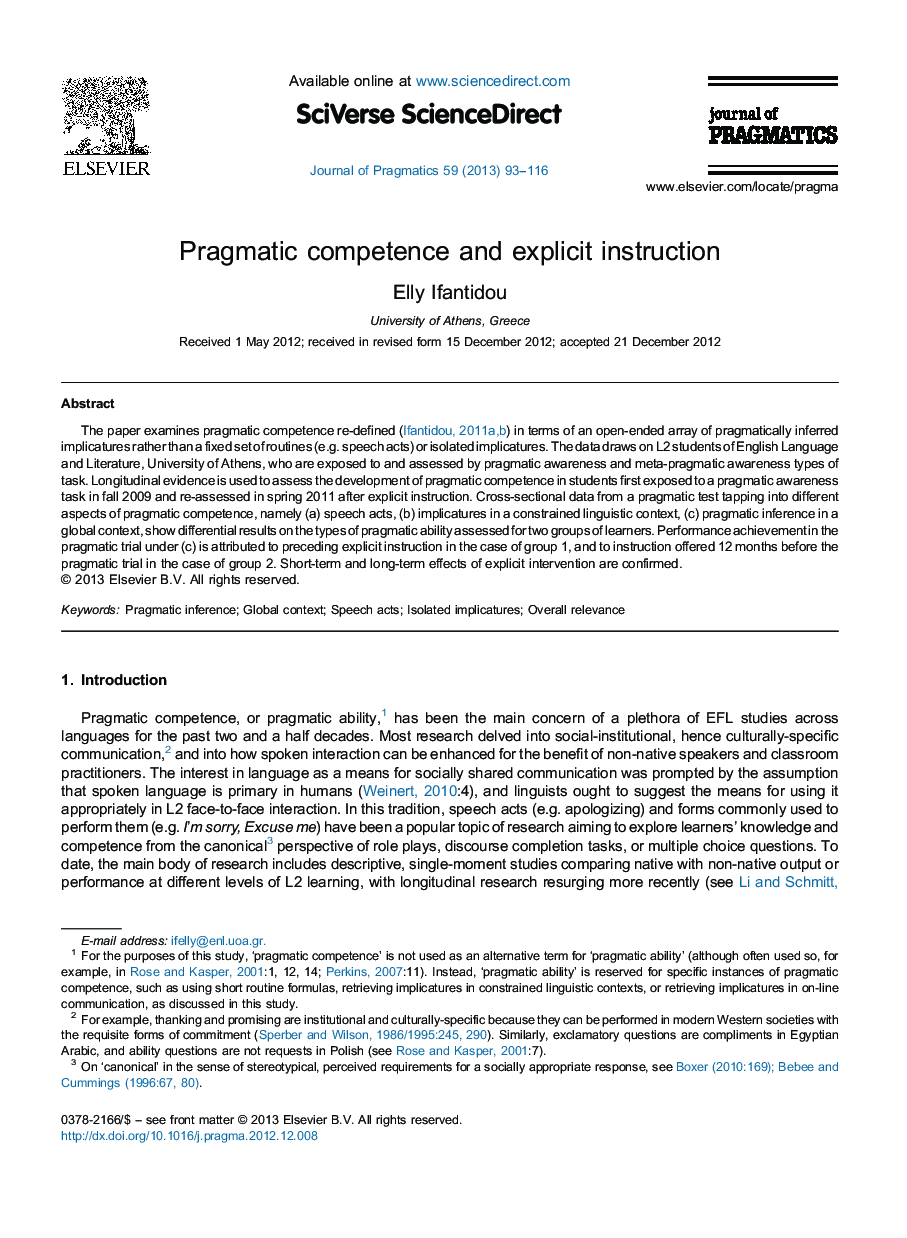| Article ID | Journal | Published Year | Pages | File Type |
|---|---|---|---|---|
| 932824 | Journal of Pragmatics | 2013 | 24 Pages |
▶ I examine isolated speech acts, implicatures, and inference in a global context. ▶ Setting criteria warrants the construal and testing of pragmatic competence. ▶ Differential results support fine-grained aspects of pragmatic competence. ▶ Participants assessed provided evidence for effects of explicit instruction. ▶ Pragmatic inference in a global context subsumes speech acts and implicatures.
The paper examines pragmatic competence re-defined (Ifantidou, 2011a and Ifantidou, 2011b) in terms of an open-ended array of pragmatically inferred implicatures rather than a fixed set of routines (e.g. speech acts) or isolated implicatures. The data draws on L2 students of English Language and Literature, University of Athens, who are exposed to and assessed by pragmatic awareness and meta-pragmatic awareness types of task. Longitudinal evidence is used to assess the development of pragmatic competence in students first exposed to a pragmatic awareness task in fall 2009 and re-assessed in spring 2011 after explicit instruction. Cross-sectional data from a pragmatic test tapping into different aspects of pragmatic competence, namely (a) speech acts, (b) implicatures in a constrained linguistic context, (c) pragmatic inference in a global context, show differential results on the types of pragmatic ability assessed for two groups of learners. Performance achievement in the pragmatic trial under (c) is attributed to preceding explicit instruction in the case of group 1, and to instruction offered 12 months before the pragmatic trial in the case of group 2. Short-term and long-term effects of explicit intervention are confirmed.
